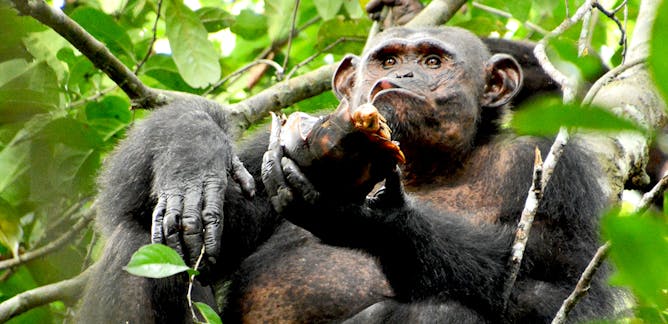|
The demands on peacekeeping missions have become ever more complex since the UN’s peacekeeping agency was established a little over seven decades ago. The role of peacekeepers has evolved from monitoring ceasefire agreements to becoming actively involved in conflict situations. Adam Day argues that, despite some important successes, peacekeeping is unlikely to resolve today’s most intractable conflicts while Charles T. Hunt reflects on peacekeeping’s guiding principles and suggests that the UN’s Department of Peacekeeping Operations may need a new doctrine for a new era.
In India, the coalition formed by the Bharatiya Janata Party (BJP) won a decisive victory in federal elections, representing a key marker in the modern history of India. Amitabh Mattoo explains.
|

South African peacekeepers on patrol in North Kivu, DR Congo
EPA/EFE/Hugh Kinsella Cunningham
Charles T. Hunt, RMIT University
UN peacekeeping missions need to adapt to the complexities of active conflict situations.
|

UN peacekeepers from South Africa in Goma, eastern Democratic Republic of Congo in 2012.
EPA/Dai Kurokawa
Adam Day, United Nations University
The UN's mandate must evolve to navigate new realities that include intra-state wars, non-state actors, and transnational crime.
|

Narendra Modi’s image was ubiquitous on the campaign trail – a sign of how much Indians have gravitated toward his cult of personality and nationalist rhetoric.
Harish Tyagi/AAP
Amitabh Mattoo, University of Melbourne
Modi has been given an overwhelming mandate to continue his reform agenda in India, but he faces many challenges in his second term as prime minister.
|
Energy + Environment
|

Matt Rigby, University of Bristol; Luke Western, University of Bristol; Steve Montzka, University of Colorado
Global CFC-11 levels were rising and no one knew why. Scientists turned detective to pinpoint the source.
| |

Lydia Luncz, University of Oxford; Alexander Piel, Liverpool John Moores University; Fiona Stewart, Liverpool John Moores University
The discovery sheds light on how early humans evolved larger brains and the ability to eat meat.
|
|
|
Politics + Society
|

Marcus Österman, Uppsala University
EU migrant households are actually a net benefit on the public purse in much of Europe.
| |

David Cortright, University of Notre Dame
Growing fears of a US conflict with Iran show why the kind of unilateral sanctions the Trump administration imposed last year don't work.
|
|
|
Science + Technology
|

Niraj Lal, Australian National University
All the buildings and the cars and the restaurants, and the phones and even everything that's inside of you... it all started with an exploding star, billions of years ago.
| |

Aaron J. Cavosie, Curtin University
The origin of Libyan desert glass found scattered in an Egyptian desert has puzzled scientists for years. But a new look at the glass structure reveals its meteoric formation.
|
|
|
En français
|

Samy Mansouri, Université Paris Dauphine – PSL
Il est prouvé que le visionnage de contenus pornographiques génère de l’addiction. Mais que sait-on de son incidence (ou de sa non-incidence) sur les comportements sexuels ?
| |

Muriel Durand, South Champagne Business School / Y SCHOOLS – UGEI
Le principe de « sauver la face » qui prédomine en Asie reste par exemple mal compris des managers occidentaux.
|
|
|